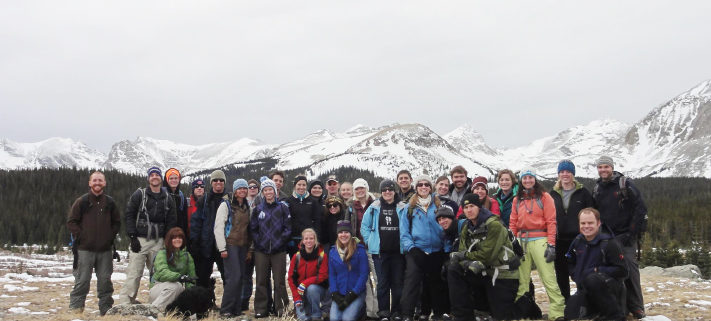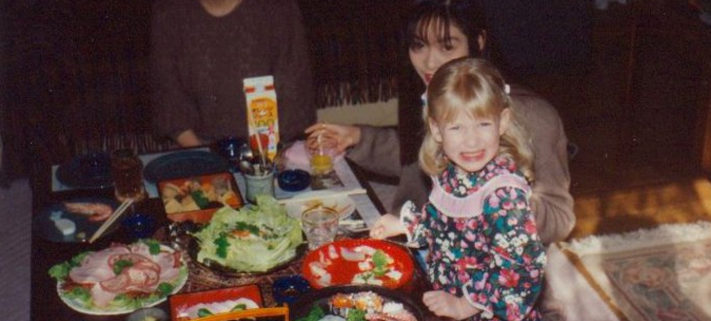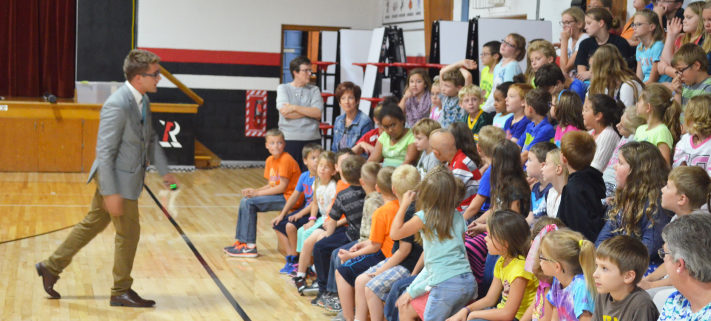What it means to be truly Lutheran: Grace alone
Grace alone
Joel D. Otto
Grace is one of those big, beautiful Bible words. As with all big, beautiful Bible words, while it is an immensely comforting concept, it has also been misunderstood and misapplied throughout history. Roman Catholicism has traditionally taught that grace is a quality that God injects into people so that they can obey his will and earn his blessings. Others try to limit the power of grace, teaching that grace can only get a person so far; we have to apply ourselves to doing acts of love or making the right decision for Jesus to finish the job.
Grace, however, is a quality in God. In fact, it defines who the true God is and what he does. Throughout the Old Testament, when God’s characteristics are listed, grace is usually near the top of the list. For example, when God revealed himself to Moses on Mount Sinai, he declared, “The Lord, the Lord, the compassionate and gracious God, slow to anger, abounding in love and faithfulness” (Exodus 34:6). The standard catechism definition of grace is “God’s undeserved love.” Yet grace is deeper than that. It is the love that moves God to act for those who cannot act for themselves and need his loving action. God acts in grace simply because God wants to act in grace. That is who God is and what God does. Martin Luther defined grace this way: “Grace means the favor by which God accepts us, forgiving sins and justifying freely through Christ” (Luther’s Works Vol. 12, p. 376).
True Lutherans confess that it is by grace alone that we have been rescued from the curse and condemnation of sin (Romans 3:23,24). It is by grace alone that we have been given new life as one of God’s children (Ephesians 2:4,5). It is by grace alone that we have been given the gift of eternal life (John 3:16). The Formula of Concord states this clearly and precisely. “We unanimously believe, teach, and confess the following about the righteousness of faith before God. . . . A poor sinful person is justified before God, that is, absolved and declared free and exempt from all his sins and from the sentence of well-deserved condemnation, and is adopted into sonship and inheritance of eternal life, without any merit or worth of his own. This happens without any preceding, present, or subsequent works, out of pure grace, because of the sole merit, complete obedience, bitter suffering, death, and resurrection of our Lord Christ alone” (III:9).
This is what makes grace such a big, beautiful, comforting Bible word. Our forgiveness, our right standing before God, and our eternal home in heaven are certain and secure entirely “out of pure grace.” That pure grace is centered in Jesus’ completed work for us. Grace alone means that our salvation, from beginning to end, is accomplished. True Lutherans understand this, proclaim it, confess it, and find comfort and confidence in grace alone.
Questions to consider
1. Read Roman 11:6 and Galatians 2:19-21. How do these passages help us understand the true definition of grace?
In Romans 11:6, Paul sets grace and works as opposites. If something can be gained by works, then grace is no longer in the picture. Paul makes a similar point in Galatians 2:19-21. Here he brings in the activity of God’s grace in Christ. Christ’s death is everything. Even the Christian life is only possible by faith in Christ who gave his life for us. If people think that good works get them somewhere with God, then Christ isn’t needed and even pointless. Grace is set aside.
Both passages show that grace is something that comes from God; it is not a quality in us. It is an action love: In love, God acts by sacrificing his Son for us.
2. Read Ephesians 2:1-10. Using these verses, describe the need for God’s grace and how God’s grace is the cause of our salvation.
By nature, we are dead in our sins. We are spiritually lifeless. This means we cannot, in any way, approach God or obey his commands. We demonstrate this deadness by living lives of disobedience, giving in to the devil’s temptations, and adopting the mindset of the sinful world. We live to gratify our sinful desires. Therefore, we deserve God’s wrath and judgment. We need God to act for us because we are powerless to have “true fear of God and true faith in God” (Augsburg Confession, Article II).
God took pity on us. Because God is love, he acted in love to save us. His grace moved him to act; nothing good in us moved him to save us. Even when we were still spiritually dead in our sins, God acted to make us spiritually alive. He gave us the gift of faith in Jesus. By faith, we receive the incomparable riches of his grace. This is entirely a gift from God to us; it is not earned by us in any way. He has even made us people who can do good works. From beginning to end, God’s grace is the active agent.
3. List at least five ways God’s grace is evident in your life.
Among others, one might consider the following:
- God created the world in which we live, a world perfectly suited for human life to exist.
- God gave me life.
- God provides what I need for daily living.
- God protects me from harm and/or works trouble for my good.
- God blessed me with a wife and family.
- God sent his Son in human flesh to be my Savior.
- Jesus lived a perfect life in my place.
- Jesus suffered the punishment for my sins on the cross.
- Through Baptism, God made me his child and gave me the gift of faith in Christ.
- I was born into a Christian family who had me baptized and taught me about Jesus.
- God continues to preserve and strengthen me in my faith through the Word and sacraments.
- God has prepared a place for me in heaven.
Contributing editor Joel Otto, a professor at Wisconsin Lutheran Seminary, Mequon, Wisconsin, is a member at Salem, Milwaukee, Wisconsin.
This is the fourth article in a 14-part series on key doctrinal emphases that Luther brought back to light through his Reformation. Find this article and answers online after Jan. 5 at wels.net/forwardinchrist.
SUBMIT YOUR STORY
Do you have a manuscript, idea, or story from your own life you’d like to share for use in Forward in Christ or on wels.net? Use our online form to share it to our editorial office for consideration.
SUBSCRIBE TO FORWARD IN CHRIST
Get inspirational stories, spiritual help, and synod news from Forward in Christ every month. Print and digital subscriptions are available from Northwestern Publishing House.
Author: Joel D. Otto
Volume 104, Number 1
Issue: January 2017
Copyrighted by WELS Forward in Christ © 2021
Forward in Christ grants permission for any original article (not a reprint) to be printed for use in a WELS church, school, or organization, provided that it is distributed free and indicate Forward in Christ as the source. Images may not be reproduced except in the context of its article. Contact us






